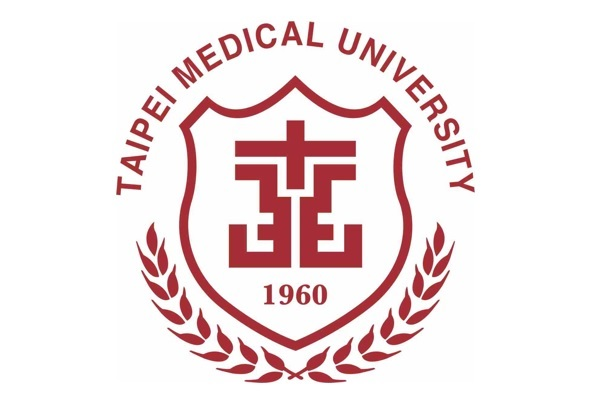Graduate Institute of Metabolism and Obesity Sciences
Research Field
Hello, students!
My name is Ching-Feng Chiu, and I am thrilled to be your teacher and mentor. I have a strong background in the field of biology, with a particular interest in cancer research. I have been studying pancreatic cancer, one of the most challenging and complex forms of cancer, focusing on understanding its molecular and metabolic mechanisms.
I believe that education is not only about imparting knowledge but also about inspiring and empowering students to explore and discover their own potential. As your teacher, my goal is to create a dynamic and engaging learning environment where we can delve into the fascinating world of biology and its relevance to our lives.
Throughout my academic journey, I have developed a deep passion for teaching and helping students succeed. I am committed to supporting each one of you on your learning journey, and I will strive to make our classes interactive, thought-provoking, and inclusive. I encourage you to actively participate in class discussions, ask questions, and challenge your understanding of the subject matter.
By sharing my knowledge and research experiences, I hope to not only broaden your understanding of biology but also inspire you to think critically and creatively. Together, we will explore the wonders of life sciences, including the complexities of cancer biology, and its implications in healthcare and society.
I am excited to embark on this educational journey with all of you. Let's work together to make our classroom a vibrant and enriching space where we can learn, discover, and grow. I look forward to getting to know each one of you and helping you reach your full potential as future biologists and scholars. Thank you for joining me on this exciting adventure!
Pancreatic cancer is one of the malignant tumors with poor prognosis and high mortality rates in today's cancer landscape. It often lacks obvious symptoms and effective diagnostic methods in the early stages, leading to most patients being diagnosed at an advanced or metastatic stage. Clinical observations have revealed that over 90% of pancreatic cancer tumors exhibit KRAS gene mutations. The KRAS gene is involved in promoting signaling pathways that activate cell cycle and growth. When mutated, it leads to uncontrolled cell division and the generation of tumor cells.
Our research aims to explore the molecular and metabolic mechanisms involved in the progression of pancreatic cancer through the study of metabolomics and proteomics. We have discovered abnormal or negative regulation in the glycolytic pathway, glutamine metabolism, pyrimidine synthesis, and iron metabolism pathways in pancreatic cancer cells with KRAS gene mutations. Furthermore, we have identified specific proteins such as LDHA, Dicer, phosphorylated Dicer, FTH1, and HPS that are highly expressed in drug-resistant or metastatic pancreatic cancer cells, influencing key metabolic pathways.
Gemcitabine is the current standard chemotherapy drug used in the treatment of pancreatic cancer. However, during its clinical use, patients often develop unexplained drug resistance. Through our understanding and research of the metabolic remodelling mechanisms in drug-resistant or metastatic pancreatic cancer cells, we have collaborated with multiple research teams and institutions to develop small molecule-modifying drugs such as CPT211 and PNAP-6. We have investigated their chemical properties, targeted protein interactions, and their ability to inhibit specific signaling pathways in cancer cells, including those with p53 mutations in colorectal cancer and triple-negative breast cancer.
Additionally, our studies connect the metabolic and proteomic research in drug-resistant pancreatic cancer cells. We have discovered the potential of natural extract betulinic acid and hydroxyl-SA to treat metastatic pancreatic cancer cells by altering mitochondrial energy metabolism and inhibiting cancer cell metastasis. Moreover, we have found that n-3 polyunsaturated fatty acid, specifically eicosapentaenoic acid derived from fish oil, effectively suppresses the KRAS/STAT3/HPS pathway, regulating lipid synthesis and altering cell growth in pancreatic cancer cells.
The current direction and goal of our laboratory research is to apply a multi-omics approach to elucidate key metabolic pathways and biological activities in digestive cancers, including pancreatic, liver, and colorectal cancer, to address the challenges encountered in clinical treatment. We aim to combine this knowledge with potential clinical drugs or novel small molecule-modifying drugs to improve drug resistance and metastatic pancreatic cancer cells, providing new opportunities for patients in the treatment of drug-resistant and metastatic pancreatic cancer.
• Metastasis, Drug-resistance, Cancer stemness
• Metabolism reprogramming
• microRNA, long-noncoding RNA
• Monoclonal antibody and immunoassay strip
2023. Research-oriented visiting scholar. Department of Biochemistry, Faculty of Medicine, Khon Kaen University, Thailand.
2022. Good Teacher Prize, Graduate Institute of Metabolism and Obesity Sciences, Taipei Medical University.
2021. Travel grant awards, The 80th Annual Meeting of the Japanese Cancer Association, Japanese Cancer Association (JCA2021), Yokohama, Japan.
2021. Deputy Secretary-general, Chinese Taipei Society for the Study of Obesity, CTSSO, Taipei, Taiwan.
2020. Travel grant awards, 2020 Malaspina International Scholars Travel (MIST) AWARD, Washington, DC, USA.
2019. Travel grant awards, The 42th Annual Meeting of the Molecular Biology Society of Japan, The Molecular Biology Society of Japan (MSBJ2019), Fukuoka, Japan.
2018. Travel grant awards, The 77th Annual Meeting of the Japanese Cancer Association, Japanese Cancer Association (JCA2018), Osaka, Japan.
2017. Travel grant awards, The 76th Annual Meeting of the Japanese Cancer Association, Japanese Cancer Association (JCA2017), Yokohama, Japan.
2017. Invited speaker, 2nd International Cancer Study & Therapy Conference (Cancer-2017), Baltimore, USA.
2016. Academic Teaching Rank Accreditation Certificate Assistant Professor (REG.NO.:143656), Minister of Education, Republic of China (Taiwan).
2016. Travel grant awards for international meetings, The Chinese Society of Cell and Molecular Biology (CSCMB), Miaoli County, Taiwan.
2016. Travel grant awards, The 39th Annual Meeting of the Molecular Biology Society of Japan, The Molecular Biology Society of Japan, Yokohama, Japan.
2016. NHRI Research Day_Excellent poster.
2004/9 - 2012/8 Ph.D. of Institute of Biotechnology, College of Bioscience and Biotechnology, National Cheng Kung University
2002/9 - 2004/6 Master of Department of Biotechnology, College of Pharmacy & Biotechnology Science, Chia Nan University of Pharmacy & Science
1998/9 - 2002/6 Bachelor of Department of Psychology, College of Social Sciences, Psychology National Chung Cheng University
